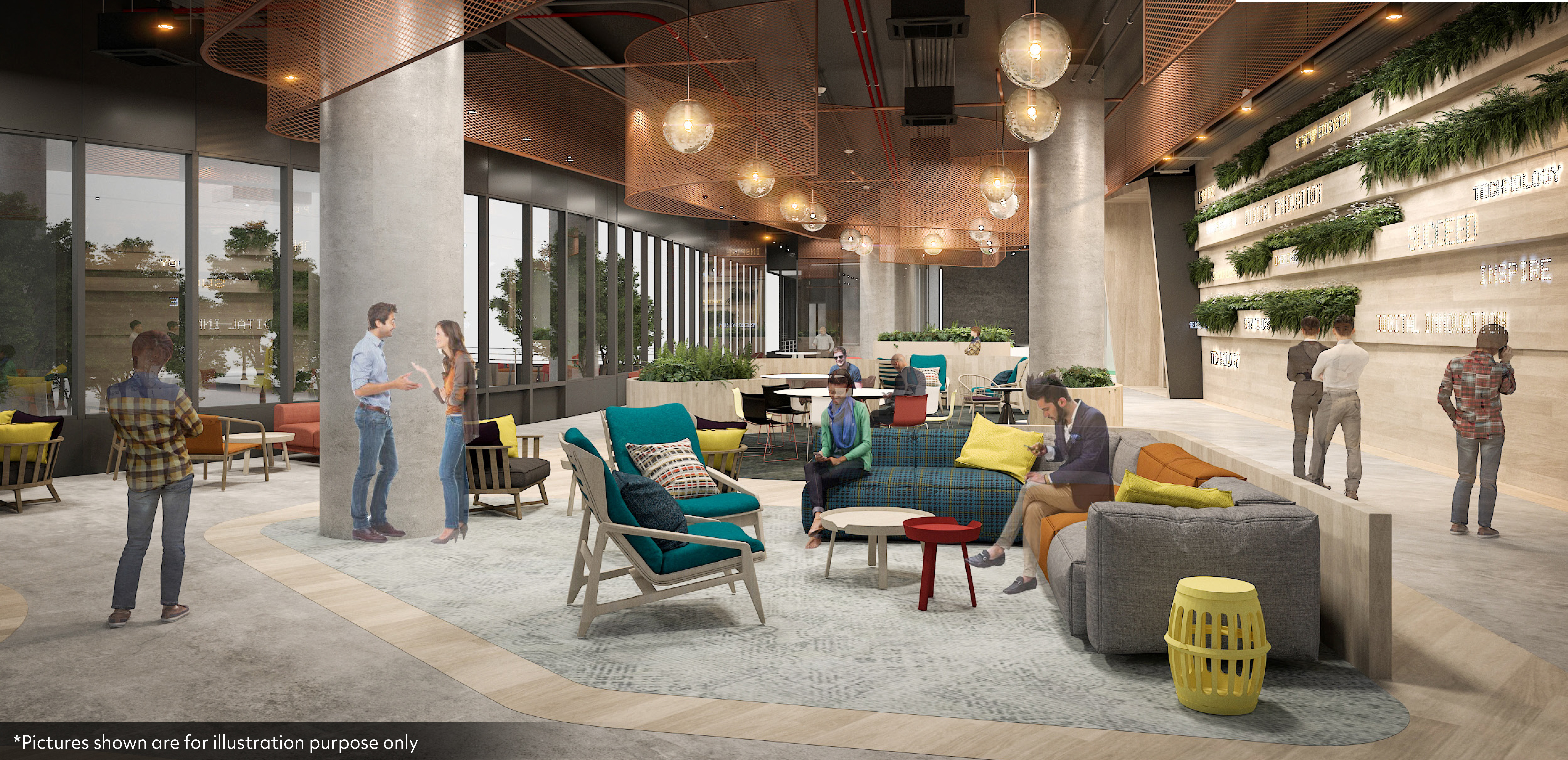
Image credit: True Digital Park
Thailand’s startup scene has seen exponential growth, from a measly three funded startups in 2012 to more than 90 funded startups in 2017, with over US$280 million dollars in raised funds.
While that growth isn’t showing signs of slowing any time soon, its startup ecosystem still has a long way to go to reach the likes of Singapore. The city-state has a startup density of one for every 2,800 people, while Thailand has a density of one startup for every 113,000 people.
This is partly because of Thailand’s history of low research and development expenditure, which only accounted for 0.5 percent of its GDP in 2014 compared to Singapore’s 2.2 percent that same year.
Enter “Thailand 4.0”, an all-encompassing roadmap designed to transform the nation into a global hub for digital innovation. As part of that grand plan, major Thai telco True Corporation has announced the launch of True Digital Park by the fourth quarter of 2018.
The park – potentially Southeast Asia’s largest of its kind – will eventually have project areas of 77,000 square meters – equal to the size of 10 soccer fields. It will have 1,000 workstations in what will be Thailand’s largest co-working space, and more than 3,000 square meters in cutting-edge labs and experience centers.
It is also expected to host the country’s first Government Digital One-Stop-Service center, providing government-related support to startup and corporate tenants.
Why startups are looking forward to the park
The increased government support is not the only reason why tenants-to-be are excited about the park’s launch. James Yenbamroong, CEO and founder of spacetech firm Mu Space, said that aside from the anticipation of being the first spacetech startup to work inside True Digital Park, the team is thrilled about the park’s open ecosystem, which promises one single roof for all kind of players in the tech and startup field, regardless of size, maturity, or company affiliation.
The open labs and experience centers within the park’s Innovation Space where Mu Space is set to be based encourage information sharing and discussions between the tenants.

Common areas in the digital park slated to open by November 2018 / Image credit: True Digital Park
“We love telling our story to inspire others. Any chance we have to tell our story, we will,” shares Yenbamroong. “Being in an open ecosystem also makes it easier for the public to understand satellite and space technology and their relevance to daily life.”
Online payment gateway company Omise CEO and founder Jun Hasegawa agrees, saying that it would be beneficial to have “a central physical touchpoint” that serves as a supportive environment and ecosystem for the tech community and doubles as a venue that allows the industry to reach out to the curious public.
“Especially in the blockchain space, the question is always, ‘What is this?’, and the only way to know is to search online. There’s too much information to sift through with too much detail that people can’t understand,” explains Hasegawa.
I dreamed of having these kinds of supportive facilities in Thailand.
Sakunee Niranvichaiya, co-founder of Chiiwii, a virtual medical consultancy startup for women, said that she’s keen to meet and learn from like-minded people across the world. She’s also eager to take a look at the park’s open lab areas, especially since she has visited similar venues in Israel.
“I dreamed of having these kinds of supportive facilities in Thailand,” says Niranvichaiya, who established Chiiwii in May last year. She adds, “The open lab would be a really nice space to learn about new technologies and devices, and I think it would be an enjoyable experience to be able to interact and think about new ways to integrate our products with what is displayed.”

Image credit: True Digital Park
Thailand vs the world
One issue that Thailand’s tech industry faces is the country’s struggle to match education levels across the Southeast Asian region. Despite Thailand’s high levels of digitization and internet penetration, the lack of English language penetration is one of the country’s biggest problems in attracting businesses to develop products, said education minister Teerakiat Jareonsettasin in an interview with Bloomberg.
But the park aims to be a one-stop location for international needs with centers aimed at supporting foreign companies and dedicated space. Apart from housing Thai startup talents, True Digital Park will also host several international companies, such as Taiwan Startup Stadium (TSS), a government-backed program that helps Taiwanese startups to go global. According to TSS general manager Holly Harrington, local tenants could learn a lot from their overseas counterparts, and Silicon Valley is a prime example of this type of environment.
She elaborates, “One of the best things about the US in recent decades has been its openness to global talent. A more global staff makes it easier to build products that can be used by a global audience, and ecosystems in Asia should keep this in mind when facing the issue of attracting international talent.”
However, Thailand’s rapidly emerging startup ecosystem also means the inevitable emergence of issues and concerns unique to the country. Homegrown startups will have to figure out strategies by themselves, rather than relying solely on international examples.
“Each startup ecosystem and focus area differs and the problems that startups are trying to solve in each ecosystem are also different,” points out Edmas Neo, executive director of Action Community for Entrepreneurship (ACE), an initiative of Singapore’s Ministry of Trade and Industry launched in 2003. ACE has worked with startup ecosystems in places like Malaysia, Korea, and China.
Thailand’s startup future
While True Digital Park’s tenants and partners have varying expectations and opportunities, they all agree that it’s an exciting development for Thai and Southeast Asian startup scene.
“What we envision with True Digital Park’s role and influence is that it can integrate resources within the park and bridge foreign startups and tech players into the region,” says Tiffany Liao, who manages startup development and events at TSS. “We believe it will become a great gateway, and we’re very happy to become its first Taiwan partner in helping this dream come true.”
Chiiwii’s Niranvichaiya concurs and expects to see many “unicorns” appear in Thailand’s future. “On a macro level, it is a destination like True Digital Park that can help accelerate Thailand to become one of the key startup hubs in Southeast Asia.”
Did you know? Over 80 percent of the space at True Digital Park is already booked. Contact hello@truedigitalpark.com to be part of this development in the heart of Southeast Asia.
This post How Thailand’s new sprawling digital park will accelerate its startup dreams appeared first on Tech in Asia.
from Tech in Asia https://www.techinasia.com/how-thailands-new-sprawling-digital-park-will-accelerate-its-startup-dreams
via IFTTT
No comments:
Post a Comment